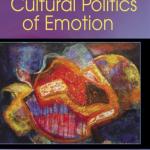In order to reclaim maleness, fundamentalism arose as a call that included a return to ‘family values’ and called women to embrace the godly calling of submissiveness. It also called the women to quit experimenting with sexual experiences outside of marriage, dancing, smoking… well, basically “flapperism.” I would agree with many of the moral values that these and the new fundamentalist would put forth, but I think the way they went about it all has damaged Christian faith in the present.
In order to defend the ‘moral code’ that they were comfortable with, men in this movement began to do several things. They defeminized the church with militant themes (hmm, ever wonder where some of the modern impulse in right wing faith towards war came from?). They kicked women out of the pulpits (who many had taken leadership because of a lack of godly men who were too tied up with questionable public lives). They attacked the so-called modernists who began to rethink and challenge their assumptions about the Bible. They attacked any person or belief system that could be labeled as a threat to the defence of the ‘moral code’ that they claimed to be biblical. All of this, they did on the grounds that the Bible should be read in a “plain sense”, taking the meaning that makes the most sense as we read it through our lens of culture (this apposed to a pre-modern understanding of Scripture as embedded in a very different cultural context that must not be ignored by proper biblical scholarship). This is why most of the early fundamentalists embraced dispensational theology, because it was based on setting up systems in the Bible so that it all made logical sense (this is where the “Left Behind” gets its view of end times from).
Well, what is my main point? I think that in an ignorant attempt to defend this new view of how to read the bible, driven by the need to preserve the ethics of the ‘moral code’ (a return to separate spheres mentality in order to allow men to feel manly again); that many unnecessary polarities have been constructed in Christian faith. For instance, why is evolution viewed as evil? Because it threatens the ‘moral code’ or the plain reading of the bible. Anyone who considers the fact that the first 11 chapters of Genesis are pre-history and that the first 3 chapters are written as poetry rather than science, is automatically an evil liberal! So, instead of entering into intelligent dialogue about matters of faith and science, Christians are viewed as naive and irrelevant. So, what do these fundamentalists do? They claim that science is completely driven by atheism and if you believe in any form of evolution you must be a practical atheist… how ridiculous this has become! Science wars are divisive, and when a student is told their entire life that their faith rises and falls on whether God made the earth in 6 days or not, and then come to realize that the majority of scientist believe the earth to be billions of years old… many of these students lose their faith. This is one example of unnecessary polarities.
Finally, I want to call the average Christian to ask questions about their assumptions that were inherited by a late 19th Century reaction to a loss of male identity. Why do I believe this about life… or God… or the mission of the Gospel… or politics? Did I come to that conclusion because of inherited fundamentalism or because that is authentically what the Bible and the way of Jesus communicates? It is in finding new answers to some of these questions that the Church will find new ways of being the people of God in America.
Let me emphasize that these are some thoughts about the origins of the movement, but that other significant factors also existed that contributed to the formation of fundamentalism.
















